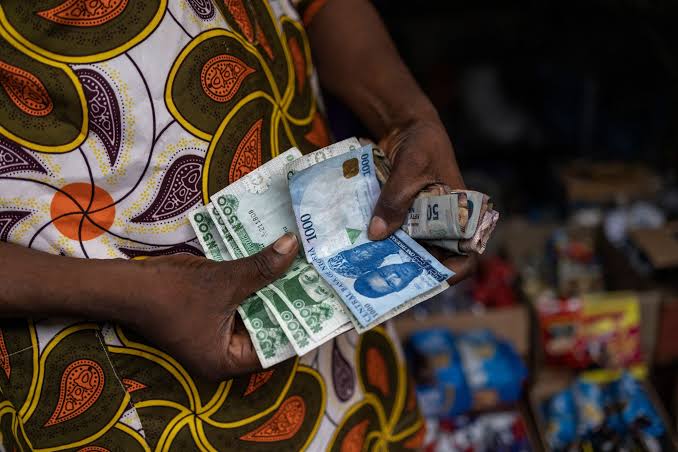
The Naira, Nigeria’s official currency, has experienced significant depreciation in recent years, raising concerns about its economic implications. Currency fluctuations are not uncommon, but the Naira’s persistent decline has been attributed to structural economic challenges, global factors, and monetary policies. This article delves into the reasons behind the Naira’s struggles and its broader effects on the economy.
Factors Contributing to the Naira’s Decline

1. Declining Foreign Exchange Reserves
One of the primary reasons for the Naira’s depreciation is the depletion of Nigeria’s foreign exchange reserves. The reserves, maintained by the Central Bank of Nigeria (CBN), are used to stabilize the currency and support trade. A drop in these reserves often leaves the currency vulnerable to external shocks.
- Causes: Lower oil revenues, high import bills, and reduced foreign direct investment (FDI).
- Impact: Inadequate reserves to defend the Naira against market pressures.
2. Oil Dependency
Nigeria’s economy is heavily dependent on crude oil exports, which account for a significant portion of its foreign exchange earnings. Fluctuations in global oil prices directly impact the inflow of foreign currency.
- Challenges:
- Falling oil prices reduce revenue.
- Disruptions in oil production due to theft and sabotage.
- Result: Lower dollar supply to the economy, increasing pressure on the Naira.
3. High Demand for Foreign Currency
The demand for foreign currency, particularly the US dollar, has surged due to increased imports and capital flight. Many Nigerians and businesses prefer to hold foreign currency as a hedge against inflation and currency devaluation.
- Implications:
- Weakening of the Naira as demand for foreign currencies outstrips supply.
- Increased parallel market activity, leading to further depreciation.
4. Policy Missteps by the CBN

The Central Bank of Nigeria (CBN) has implemented various measures to stabilize the Naira, but some have been criticized as ineffective or counterproductive.
- Policies:
- Restrictions on forex access for certain imports.
- Multiple exchange rate regimes creating market inefficiencies.
- Outcome: Lack of confidence in the monetary system and widening gaps between official and parallel market rates.
5. Rising Inflation
High inflation reduces the purchasing power of a currency, making it less attractive to investors and the public. Persistent inflation in Nigeria, fueled by rising food and energy prices, has eroded confidence in the Naira.
Economic Implications of the Naira’s Decline
1. Rising Cost of Living
The devaluation of the Naira increases the cost of imported goods and services, as businesses pass on higher forex costs to consumers. This leads to:
- Increased prices for essential goods such as food, fuel, and medicine.
- Lower disposable income for households.
2. Inflationary Pressures
A weaker currency contributes to imported inflation, as the cost of goods and services sourced from abroad rises. Inflation further undermines economic stability and reduces consumer purchasing power.
3. Decline in Investor Confidence
Currency instability discourages both domestic and foreign investment. Investors seek stable environments, and frequent Naira devaluations signal underlying economic vulnerabilities.
- Effect: Reduced foreign direct investment (FDI) inflows and slowed economic growth.
4. Impact on Businesses
Local businesses relying on imported inputs face higher production costs due to the weak currency. This often leads to:
- Higher prices for consumers.
- Reduced competitiveness for Nigerian goods in international markets.
5. Pressure on Government Finances
The government relies on oil revenues, which are earned in dollars, to finance its budget. A depreciating Naira increases the cost of servicing foreign debts and limits spending on development projects.
What Can Be Done to Stabilize the Naira?
1. Diversify the Economy
Reducing dependence on oil and fostering growth in other sectors like agriculture, technology, and manufacturing can boost forex inflows and reduce vulnerability to external shocks.
2. Boost Forex Reserves
Enhancing foreign exchange reserves through:
- Encouraging non-oil exports.
- Attracting FDI and remittances from the diaspora.
3. Strengthen Monetary Policies
The CBN must implement transparent and consistent monetary policies to rebuild confidence in the Naira. Unifying exchange rates and easing access to forex could also reduce market distortions.
4. Reduce Import Dependency
Promoting local production and reducing reliance on imports can lower the demand for foreign currency and stabilize the exchange rate.
5. Tackle Inflation
Addressing inflation through fiscal discipline, subsidies for key commodities, and monetary measures can help stabilize the economy and improve the currency’s value.
Conclusion
The decline of the Naira is a symptom of deeper economic challenges, from overdependence on oil to structural inefficiencies. While the depreciation has far-reaching consequences, strategic policies and diversification can help mitigate its impact and restore stability. For Nigeria to achieve sustained economic growth, a robust and proactive approach is essential to address the underlying causes of currency depreciation and foster a resilient economy.




